Hysterectomy: Everything You Need to Know
.png?v=1664876293286)
Related products
A hysterectomy is a surgical procedure that removes all or part of the uterus (the womb). It alleviates the symptoms brought on by the various medical problems that damage the womb. It is considered a major surgical operation due to the dangers and potential adverse consequences associated with the procedure.
Because of this, it is often only explored after other therapies are insufficiently successful. However, suppose a woman has cancer that has spread to the uterus or the ovary. In that case, the doctor may require a hysterectomy to remove the tumour.
Types of Hysterectomy
Different hysterectomy techniques are possible depending on why a person is required. How much womb and reproductive tissue is left intact? These are the most frequently performed operations:
Total hysterectomy with bi-polar salpingo-oophorectomy: removal of fallopian womb tube. The uterine womb is removed, but the pelvis remains intact, and the cervix remains.
Radical hysterectomy: womb and surrounding tissues, including the pelvic duct and the pelvis of the fallopian tube, have been removed.
Comparison of MIP Hysterectomy and Abdominal Hysterectomy
MIP procedures can be used as an option for removing uterine stenosis and offer several advantages over more traditional open surgery used for abdominal hysterectomy. MIPs provide more rapid recovery than abdominal surgeries, which can cause less discomfort and scarring. Generally, if people have an abdominal hysterectomy, they can resume their normal activities within three or four weeks. The cost was significantly lower for MIPs compared to open surgery in terms of instruments used and duration of surgery.

Physically
You can stop having periods immediately when you have a hysterectomy. Sometimes bloating and other discomforts can happen. Typically there is vaginal swelling and light brown discharge for around three days of the procedure. It may cause pain in the area around the four week mark post-op, and any redness, bleeding, or swelling should disappear in 4-6 weeks. You may feel pain or a burning sensation from the procedure. You may also feel numbness at the wound or down the leg. It's typically the norm and usually lasts about one month. There are always some scars inside of the body.
Emotionally
You are undoubtedly aware that a hysterectomy will cause a variety of changes to take place within your body. Aside from the physical toll, the operation may also leave an emotional scar. All of these impacts, however, are very dependent on the individual. Your feelings may be different from those of another person.
Here are some of the possible emotions women may feel after a hysterectomy procedure:
Feelings of relief:
After having their uterus removed, some women report feeling relieved. Surgical procedures frequently cure unpleasant conditions, such as severe pain and heavy bleeding. Eliminating such symptoms might bring about a sense of relief. You might also have an increased sense of calm.
In addition, after the hysterectomy is complete, you will no longer be subject to menstruation. It is not going to be possible for you to become pregnant. When they no longer need to worry about becoming pregnant or getting their period every month, some women experience a sense of relaxation.
Feelings of sadness and depression:
A hysterectomy may bring on emotions of melancholy and depression. It's even possible that it might cause depression. For many women, the experience of losing their fertility and their capacity to have children is traumatic. Some women feel "changed." They can also be grieving the end of their reproductive potential.
Feelings of suddenly getting old:
A hysterectomy may trigger menopause in women at an earlier age than average. However, hysterectomy and menopause are not two sides of the same coin. After having a hysterectomy, you will only enter menopause if your fallopian tubes and ovaries are also removed along with your uterus at the same time. This shift may be more sudden than if it had occurred organically.
Fear of having a change in female appearance - Younger women who want to undergo a hysterectomy are frequently concerned about how the procedure may affect their physical appearance. They are worried that it will cause them to behave more manly.
The ovaries are left intact during a hysterectomy; only the uterus is removed. Progesterone and oestrogen are two female sex hormones produced by the ovaries. However, even having the ovaries surgically removed through a procedure known as an oophorectomy does not result in the development of male traits. According to research, a woman's anxiety about maturing into a more masculine form is much reduced if she has a greater understanding of her anatomy. The tension that it causes also increases. You don't need to worry about a hysterectomy affecting your femininity.
The disadvantage of having a hysterectomy
Hysterectomy is major surgery and requires a long recovery. There are risks and side effects, but the consequences are permanent. Depending upon the type of operation, menopause symptoms can develop. You may also not get pregnant following this surgery.
Additionally, as a severe reaction to general anaesthesia or regional anaesthesia, you may experience heavy bleeding - sometimes persistent bleeding - and difficulty in bowel movements.
Although very unusual, there is a risk of causing injury to surrounding organs during the procedure.
What are the advantages of having a hysterectomy?
Hysterectomy helps to make your life easier. It includes preventing pelvic pain and bleeding. Hysterectomy is recommended for people with increased uterine cancer risk, which may save lives.
Vaginal Hysterectomy
A vaginal hysterectomy is a surgical operation that removes the uterus through the vagina. During the surgery, one or both of the patient's ovaries and fallopian tubes may also be removed; the removal of both the patient's ovaries and fallopian tubes is referred to as a bilateral salpingo-oophorectomy (BSO).
Unlike abdominal hysterectomy, vaginal or laparoscopic hysterectomy only takes up to more days of staying at the hospital. Further, vaginal and laparoscopic hysterectomies are considered less invasive treatments. You can fully recover between 3 to four weeks after the surgery.
Vaginal hysterectomy recovery time can take up to four weeks. Symptom recovery may be as short as six weeks after abdominal hysterectomy. Talk to your physician before returning to the house.
Laparoscopic hysterectomy
The term "keyhole surgery" refers to another name for laparoscopic surgery. It is the most common and effective method for removing the reproductive organs and tissues surrounding them.
The techniques in minimally invasive treatments, such as laparoscopic hysterectomy, use small abdominal incisions.
During the process, a small tube that contains a telescope (laparoscope) and a tiny video camera will be introduced via a small cut (incision) in your stomach. It will allow the doctor to examine your abdominal cavity. The surgeon performs the surgery while viewing the video fed by the tiny video camera.
The surgeon will be able to see your interior organs thanks to this. The womb, the cervix, and any other portions of the patient's reproductive system are removed using instruments introduced via further tiny incisions made in the patient's abdomen or vagina.
Laparoscopic hysterectomies are often performed while the patient is under the influence of general anaesthesia.
Radical Hysterectomy
A radical hysterectomy involves the removal of the uterus, cervix, ovaries, fallopian tubes, and any surrounding tissue in the way. Both a low transverse incision and a vertical incision are utilized in the performance of these surgeries.
However, you should think thoroughly before deciding to have your cervix and ovaries removed.
Abdominal Hysterectomy
A small abdominal incision is made in the lower part of the abdomen to perform an abdominal hysterectomy. This surgical surgery removes the uterus. If you are pregnant, the baby will develop inside your uterus, also known as your womb. During a partial hysterectomy, the uterus is removed, and the cervix is not affected in any way. The uterus and the cervix are both removed during a total hysterectomy.
A partial hysterectomy is also known as a supracervical hysterectomy.
After the hysterectomy, most women will experience typical sexual pleasure and enough lubrication in their sexual organs. However, suppose a premenopausal woman undergoes surgery to remove her ovaries simultaneously with the vaginal hysterectomy. In that case, the vagina will be less moist and more sensitive. It might affect their sexual function and sex life in general.
Generally not, but especially if you have an incredibly high rate of cervical cancer. Pap testing can also be done in hysterectomy if there are cancers in the blood.
How common is a hysterectomy?
Around 300,000 American women get hysterectomies annually. It's the most commonly done operation for female surgeons after caesarean sections.
Open surgery - Hysterectomy
Having a stomach surgically removed will cause pain in the abdomen. It is the commoner method of hysterectomy with around 54% of benign diseases. A surgeon can make up to six to seven inches of incisions in belly slits for abdominal hysterectomy. In this incision, a surgeon removes uterine material. Following a hysterectomy, a patient may need two to three days to go to an intensive care unit for treatment. A visible scar appears in the place where this wound occurred during healing.
Why it's done?
The surgery is called hysterectomy and can stop pregnancy. Occasionally cancer is treated with hysterectomy. Suppose you have a condition such as fibroids, endometrial problems, or uterine prolapse. In that case, you can get less invasive treatment first. Suppose your ovaries have fallen off in hysterectomy surgery. A similar procedure can be carried out in that case: a bilatéral salpingo-oophorectomy is performed on the upper ovaries.
Surgical techniques for hysterectomy
Surgeons use different methods to perform hysterectomies according to the patient's experience, cause of surgery, or general health. The hysterectomy procedure can affect healing time and the types of wounds which can remain following surgery. The process can be performed with traditional or open surgical procedures using minimally invasive procedures (MI).
Does hysterectomy cause early menopause?
During a thoracic or hysterectomy that removes the ovaries, menopause may occur. It can also be called invasive menopause. When doctors perform a hysterectomy on your ovaries, you will likely experience menopause within five years.
Once the ovaries are removed, a woman will experience menopausal symptoms or surgical menopause.
Removing your ovaries can exacerbate symptoms such as vaginal dryness, hot flashes, and mood swings.
Why do I need a hysterectomy?
Hysterectomies can treat problems that impact female reproductive systems. This is the case of hysterectomy surgery which takes longer to recover and is only recommended for less invasive treatment.
Just a quick reminder: You'll need the walk-in-hospital every two months for a couple of months. You may go on a 10-minute daily hike for two weeks. This can be increased by five minutes weekly.
How many days rest after hysterectomy?
A vaginal hysterectomy is performed through the vagina to remove the uterus. A woman usually returns home within 24 hours of undergoing surgical procedures. She may be returned to her everyday life after six weeks, although hysterectomy has life-long effects.
Do and don'ts after hysterectomy?
Not performing any work after contacting your doctor for any restrictions is best. Do not lift for two weeks. Walking is encouraged but not mandatory. After six months, you can resume your daily routine, including sexual activity.
Bottomline
The womb and female reproductive system can be safe after surgery. It treats heavy vaginal bleeding, fibroid tumours, and other conditions. In addition, the surgery can also alleviate chronic pelvic pain in women.
Does hysterectomy affect sex life in many women? In a way, sexual desire often decreases after menopause and hysterectomy. However, it may increase or decrease depending on the woman's age and health.
There are other treatment options aside from hysterectomy. In the event your doctor finds scar tissue from previous surgeries that you have, they may tackle the procedure with you seriously before major surgery.
Women's health should be a priority. Hysterectomy is a surgical procedure that can relieve many conditions that affect women's health, such as heavy vaginal bleeding, uterine fibroids, etc. The womb and reproductive system can be safe after surgery despite side effects like decreased sexual desire, which may increase or decrease for different reasons.
For more specific information about women's health, read our information pages found here.




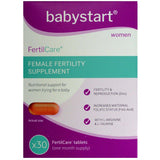













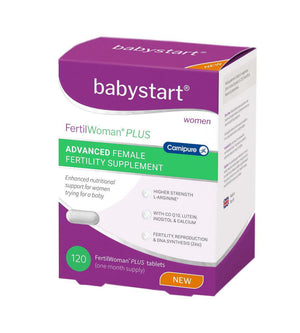
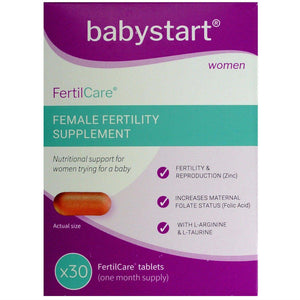
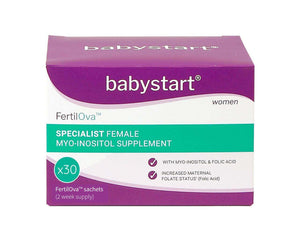





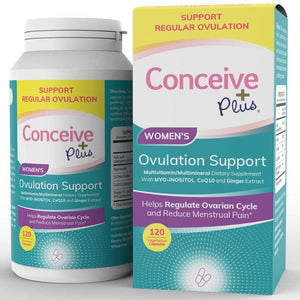


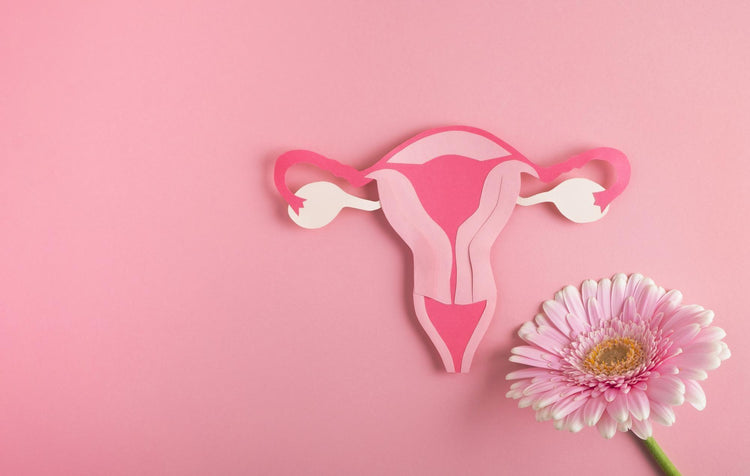








 Rated Excellent by 26,523+ Reviews
Rated Excellent by 26,523+ Reviews